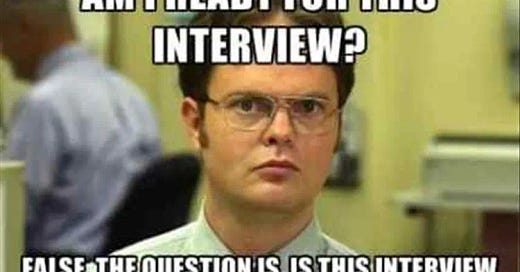A good interview, journalists are often told, will answer the W5: Who, what, where, when, and why. By that standard, I’m a very poor interviewer. I often forget to ask fundamental questions, like when did you open this business and what is your title, leading to some blushing follow up emails in which I have to slink back and ask the basics. I’d like to say that I’ve learned my lesson about this over the years, but in reality, I haven’t. However, I still manage to get some good quotes, even juicy ones, by using certain interview questions again and again.
I used to think that interviewing subjects and using their quotes was lazy. Like, I’ve been assigned an 800 word essay. It’s cheating if 100 words of that come from someone else, right? Uh, turns out that it isn’t. In fact, it’s exactly what you’re supposed to do. Quotes add context, colour, and credibility to a piece. If you always feel like you didn’t quite get everything you wanted from an interview or that you got all the basics but still lack pizazz, these are some of my go-to queries to get better, richer quotes.
“What do you wish more people knew about _____?” Everyone loves sharing their opinion, and this question is popular because people are always eager to clear up misinformation or showcase little-known facts. (How I’ve used it recently: “What do you wish people knew about Hike Ontario?” “What do you wish people knew about winter swimming?”)
“So is it fair to say ______?” This is the easiest way to clarify information and turn some lacklustre facts into a more engaging quote. Plus, it shows the interview subject that you’re listening, and it makes your interview feel more like a conversation. (How I’ve used it recently: “So is it fair to say that people should focus less on chaos gardening and more on character gardening?” “Is it fair to say that no one in your office saw the tech boom coming and that you were as surprised as everyone else?”)
“Walk me through the experience as if I were a new customer/employee/visitor.” Have you ever had a long conversation with someone and you still don’t really know what they do, and, in fact, the interview subject has gone off on a tangent or five? This will help bring things back to basics. (How I’ve used it recently: “Walk me through the experience of someone visiting the farm. What are the first three things they’ll do?” “If I was visiting the festival this weekend, what would my itinerary look like?”)
Keep reading with a 7-day free trial
Subscribe to The Clothesline by Vanessa Chiasson to keep reading this post and get 7 days of free access to the full post archives.




